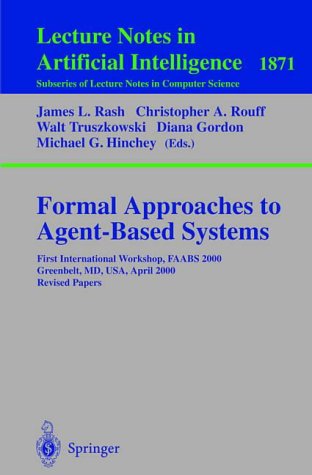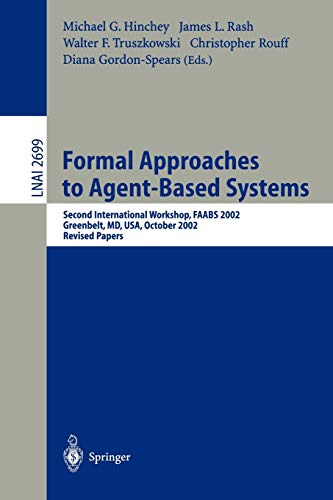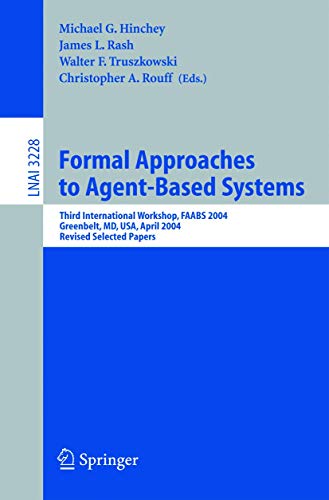Walter Truszkowski (50 results)
Search filters
Product Type
- All Product Types
- Books (50)
- Magazines & Periodicals (No further results match this refinement)
- Comics (No further results match this refinement)
- Sheet Music (No further results match this refinement)
- Art, Prints & Posters (No further results match this refinement)
- Photographs (No further results match this refinement)
- Maps (No further results match this refinement)
- Manuscripts & Paper Collectibles (No further results match this refinement)
Condition Learn more
- New (38)
- As New, Fine or Near Fine (7)
- Very Good or Good (4)
- Fair or Poor (No further results match this refinement)
- As Described (1)
Binding
Collectible Attributes
- First Edition (No further results match this refinement)
- Signed (No further results match this refinement)
- Dust Jacket (No further results match this refinement)
- Seller-Supplied Images (28)
- Not Print on Demand (34)
Language (2)
Free Shipping
Seller Location
Seller Rating
-
Paperback. Condition: Very Good. Ex-library paperback in nice condition with the usual markings and attachments. Except for library markings, interior clean and unmarked. Tight binding.
-
Condition: New. pp. 384 Illus.
-
Condition: New. pp. 384.
-
Paperback. Condition: Good. Connecting readers with great books since 1972! Used textbooks may not include companion materials such as access codes, etc. May have some wear or writing/highlighting. We ship orders daily and Customer Service is our top priority!
-
Condition: New. pp. 384.
-
Formal Approaches to Agent-Based Systems. Second International Workshop, FAABS 2002. Revised Papers.
Seller: Universitätsbuchhandlung Herta Hold GmbH, Berlin, Germany
IX, 295 p. Softcover. Versand aus Deutschland / We dispatch from Germany via Air Mail. Einband bestoßen, daher Mängelexemplar gestempelt, sonst sehr guter Zustand. Imperfect copy due to slightly bumped cover, apart from this in very good condition. Stamped. Lecture Notes in Artificial Intelligence, Vol. 2699. Sprache: Englisch.
-
Paperback. Condition: Very Good. Ex-library paperback in very nice condition with the usual markings and attachments.
-
Condition: New.
-
Condition: New.
-
Condition: New.
-
Condition: As New. Unread book in perfect condition.
-
Condition: As New. Unread book in perfect condition.
-
Paperback. Condition: Very Good. Ex-library paperback in very nice condition with the usual markings and attachments.
-
Paperback. Condition: New.
-
PF. Condition: New.
-
Formal Approaches to Agent-Based Systems: Third International Workshop, FAABS 2004, Greenbelt, MD, April 26-27, 2004, Revised Selected Papers (Lecture Notes in Computer Science, 3228)
Seller: Ria Christie Collections, Uxbridge, United Kingdom
£ 49.30
£ 11.98 shipping
Ships from United Kingdom to U.S.A.Quantity: Over 20 available
Add to basketCondition: New. In.
-
Formal Approaches to Agent-Based Systems: Second International Workshop, FAABS 2002, Greenbelt, MD, USA, October 29-31, 2002, Revised Papers (Lecture Notes in Computer Science, 2699)
Seller: Ria Christie Collections, Uxbridge, United Kingdom
£ 49.30
£ 11.98 shipping
Ships from United Kingdom to U.S.A.Quantity: Over 20 available
Add to basketCondition: New. In.
-
Formal Approaches to Agent-Based Systems: First International Workshop, FAABS 2000 Greenbelt, MD, USA, April 5-7, 2000 Revised Papers (Lecture Notes in Computer Science, 1871)
Seller: Ria Christie Collections, Uxbridge, United Kingdom
£ 49.30
£ 11.98 shipping
Ships from United Kingdom to U.S.A.Quantity: Over 20 available
Add to basketCondition: New. In.
-
Formal Approaches to Agent-Based Systems : Second International Workshop, Faabs 2002, Greenbelt, Md, Usa, October 29-31, 2002 : Revised Papers
Seller: GreatBookPricesUK, Woodford Green, United Kingdom
Condition: New.
-
Formal Approaches to Agent-based Systems : Third International Workshop, Faabs 2004, Greenbelt, Md, April 26-27, 2004, Revised Selected Papers
Seller: GreatBookPricesUK, Woodford Green, United Kingdom
Condition: New.
-
Formal Approaches to Agent-Based Systems : First International Workshop, Faabs 2000, Greenbelt, Md, Usa, April 5-7, 2000, Revised Papers
Seller: GreatBookPricesUK, Woodford Green, United Kingdom
Condition: New.
-
Condition: New. pp. 316.
-
Formal Approaches to Agent-Based Systems : First International Workshop, Faabs 2000, Greenbelt, Md, Usa, April 5-7, 2000, Revised Papers
Seller: GreatBookPricesUK, Woodford Green, United Kingdom
Condition: As New. Unread book in perfect condition.
-
Formal Approaches to Agent-based Systems : Third International Workshop, Faabs 2004, Greenbelt, Md, April 26-27, 2004, Revised Selected Papers
Seller: GreatBookPricesUK, Woodford Green, United Kingdom
Condition: As New. Unread book in perfect condition.
-
Formal Approaches to Agent-Based Systems
Language: English
Published by Springer Berlin Heidelberg, Springer Berlin Heidelberg Jul 2003, 2003
ISBN 10: 3540406654 ISBN 13: 9783540406655
Seller: buchversandmimpf2000, Emtmannsberg, BAYE, Germany
Taschenbuch. Condition: Neu. Neuware -The idea of a FAABS workshop was first conceived in 1998 at the NASA Goddard Space Flight Center, while the Agent Technology Development Group in the Advanced Architectures and Automation Branch (Code 588) was developing a prototype agent community to automate satellite ground operations. While developing this system, several race conditions arose within and between agents. Due to the complexity of the agents and the communications between them, it was decided that a formal approach was needed to specify the agents and the communications between them, so that the system could be checked for additional errors. A formal model of the inter-agent communications was developed, with the expectation that this would enable us to find more errors. Success in this convinced us of the importance of using formal methods to model agent-based systems. To share our own experiences and to learn how others were approaching these issues, we decided to hold a workshop on formal methods and agent-based systems. The response was overwhelming. The result was the first FAABS workshop, which was held at the NASA Goddard Space Flight Center. Posters, paper presentations, panels, and an invited talk by J Moore stimulated much discussion and subsequent collaboration. 312 pp. Englisch.
-
Formal Approaches to Agent-Based Systems : Third International Workshop, FAABS 2004, Greenbelt, MD, April 26-27, 2004, Revised Selected Papers
Language: English
Published by Springer Berlin Heidelberg, 2005
ISBN 10: 3540244220 ISBN 13: 9783540244226
Seller: AHA-BUCH GmbH, Einbeck, Germany
Taschenbuch. Condition: Neu. Druck auf Anfrage Neuware - Printed after ordering - The 3rd Workshop on Formal Approaches to Agent-Based Systems (FAABS-III) was held at the Greenbelt Marriott Hotel (near NASA Goddard Space Flight Center) in April 2004 in conjunction with the IEEE Computer Society. The first FAABS workshop was help in April 2000 and the second in October 2002. Interest in agent-based systems continues to grow and this is seen in the wide range of conferences and journals that are addressing the research in this area as well as the prototype and developmental systems that are coming into use. Our third workshop, FAABS-III, was held in April, 2004. This volume contains the revised papers and posters presented at that workshop. The Organizing Committee was fortunate in having significant support in the planning and organization of these events, and were privileged to have wor- renowned keynote speakers Prof. J Moore (FAABS-I), Prof. Sir Roger Penrose (FAABS-II), and Prof. John McCarthy (FAABS-III), who spoke on the topic of se- aware computing systems, auguring perhaps a greater interest in autonomic computing as part of future FAABS events. We are grateful to all who attended the workshop, presented papers or posters, and participated in panel sessions and both formal and informal discussions to make the workshop a great success. Our thanks go to the NASA Goddard Space Flight Center, Codes 588 and 581 (Software Engineering Laboratory) for their financial support and to the IEEE Computer Society (Technical Committee on Complexity in Computing) for their sponsorship and organizational assistance.
-
Formal Approaches to Agent-Based Systems : Second International Workshop, FAABS 2002, Greenbelt, MD, USA, October 29-31, 2002, Revised Papers
Language: English
Published by Springer Berlin Heidelberg, 2003
ISBN 10: 3540406654 ISBN 13: 9783540406655
Seller: AHA-BUCH GmbH, Einbeck, Germany
Taschenbuch. Condition: Neu. Druck auf Anfrage Neuware - Printed after ordering - The idea of a FAABS workshop was first conceived in 1998 at the NASA Goddard Space Flight Center, while the Agent Technology Development Group in the Advanced Architectures and Automation Branch (Code 588) was developing a prototype agent community to automate satellite ground operations. While developing this system, several race conditions arose within and between agents. Due to the complexity of the agents and the communications between them, it was decided that a formal approach was needed to specify the agents and the communications between them, so that the system could be checked for additional errors. A formal model of the inter-agent communications was developed, with the expectation that this would enable us to find more errors. Success in this convinced us of the importance of using formal methods to model agent-based systems. To share our own experiences and to learn how others were approaching these issues, we decided to hold a workshop on formal methods and agent-based systems. The response was overwhelming. The result was the first FAABS workshop, which was held at the NASA Goddard Space Flight Center. Posters, paper presentations, panels, and an invited talk by J Moore stimulated much discussion and subsequent collaboration.

















